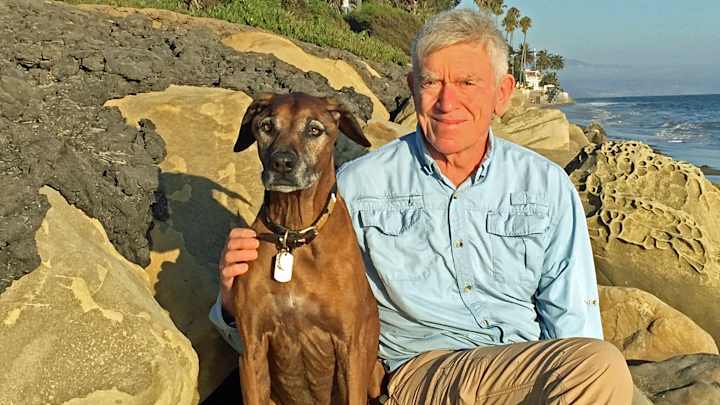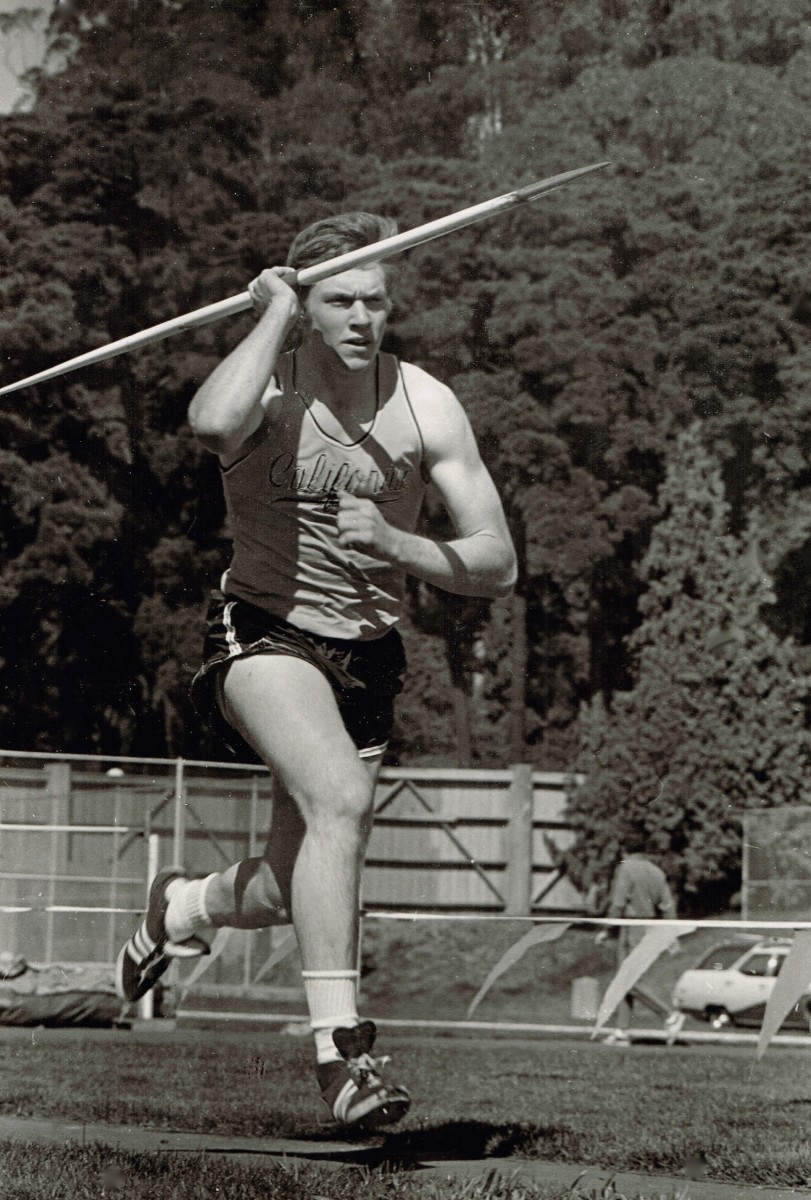With Tokyo Approaching, Ex-Cal Javelin Star Bruce Kennedy Knows the Olympic Terrain

The Tokyo Olympics are scheduled to begin July 23 — three months from today. But nothing is straightforward in the era of COVID-19, and despite assurances from officials there are unsettling signs.
Japan is in the midst of a fourth COVID wave, with more than 4,100 new cases last Sunday, according to Time magazine. The country has the world’s oldest population and less than 1 percent of its citizens are vaccinated.
What could possibly go wrong?
Athletes from around the globe who expected to gather at Tokyo a year ago, already had to recalibrate their timetable once because of the pandemic. The Olympics are expected to happen this summer, but there is no escaping the uncertainty that clouds the next three months.
Bruce Kennedy has no special knowledge of whether the Tokyo Olympics will come off. But perhaps no one is as well-equipped as the 70-year-old Cal graduate to share insights on what it’s like to face concerns approaching the Games.

Kennedy, who set Cal’s javelin record in 1973, made the Olympic team in 1972 for his native Rhodesia, then a British colony. He made it again in ’76. Kennedy became an American citizen a year later and in 1980 qualified for the U.S. team.
That was the extent of his Olympic experience. He never competed at the Games.
*** Kennedy is confident Cal's Camryn Rogers will compete at Tokyo this summer.
Rhodesia was banned from the Olympics in 1972 and ’76, and President Jimmy Carter had the U.S. team boycott the Moscow Games in ’80 after the USSR invaded Afghanistan.
So Kennedy knows the perils of a shifting landscape.
“Who knows what’s going to happen,” he said.
“My attitude, if I was a current athlete with potential to make the team, would be as I had in ’80, don’t let something control me that I can’t control myself.”
In the video above, Kennedy recalled finding out about the 1980 boycott in January — six months before the Moscow Games would begin.
Some of his friends backed off their preparation.
“I didn’t stop training,” Kennedy said. “I continued training hard because I’d been training so long that missing the Olympics was only one meet.”
In fact, between 1973 and ’79, Kennedy explained he didn’t once improve his personal best in the javelin. But after spending 10 days in Houston working with well-known coach Tom Tellez, he had a breakthrough.
In 23 competitions in 1980, Kennedy said his average mark was better than his previous personal best. “I just exploded,” he said, noting a 20-foot improvement.
“I would have lost that if I had thrown up my hands and said, `There’s no Olympics,’ “ Kennedy said. “The Olympics, sure it was a great disappointment, but that’s not the end of the world.”
Kennedy hopes prospective 2021 Olympics won’t blink, no matter what news might arrive in the weeks ahead.
“If you stop training, you don’t hurt anybody but yourself,” he said. “So I think you should continue training as though it’s going to happen. Because if it does happen and you’re there, you want to be ready.”
Kennedy talks in the video below about the specifics of the circumstances that derailed his three chances to compete at the Games:
A half-century later, Kennedy still harbors no bitterness about the path he traveled. And he is realistic about what was lost.
“In ’72, I was the best thrower from a very small country. I would show up, take my three throws and that’s it. I was training as hard as anyone else, but that’s the reality. Same thing in ’76,” he said.
Kennedy had lived in the U.S. for several years by ’76, but was the only member of the Rhodesian team with that perspective from the outside to a a country with racist government policies.
“I understood the reaction from other people to our government and our political system,” he said. “I could appreciate the opposition to us competing.”
The situation was different in ’80, when the U.S. pulled out of the Olympics.
“I don’t think there were too many athletes that really believed that the U.S. boycott would alter anything at all in the Russian scheme,” Kennedy said. “But we had no choice.”
Rhodesia’s government had fallen by then, and the newly formed Zimbabwe was invited to the Moscow Olympics. Kennedy’s homeland offered him the chance to compete on its team. He said no thanks.
“I was an American. An American first, an athlete second,” he explained. “I really believed that part of the privilege of being an American, you also have some obligations.
“The obligation is you do what the President has ordered you to do. Even if you don’t agree with it, which I personally didn’t.”
Kennedy did finally get the chance to go to the Olympics. He tried qualifying the U.S. team again in ’84 but didn’t make it. Instead, he volunteered to serve as an usher at the Los Angeles Memorial Coliseum, which hosted track and field.
Cover photo of Bruce Kennedy and his dog courtesy of Cal Athletics
Follow Jeff Faraudo of Cal Sports Report on Twitter: @jefffaraudo
